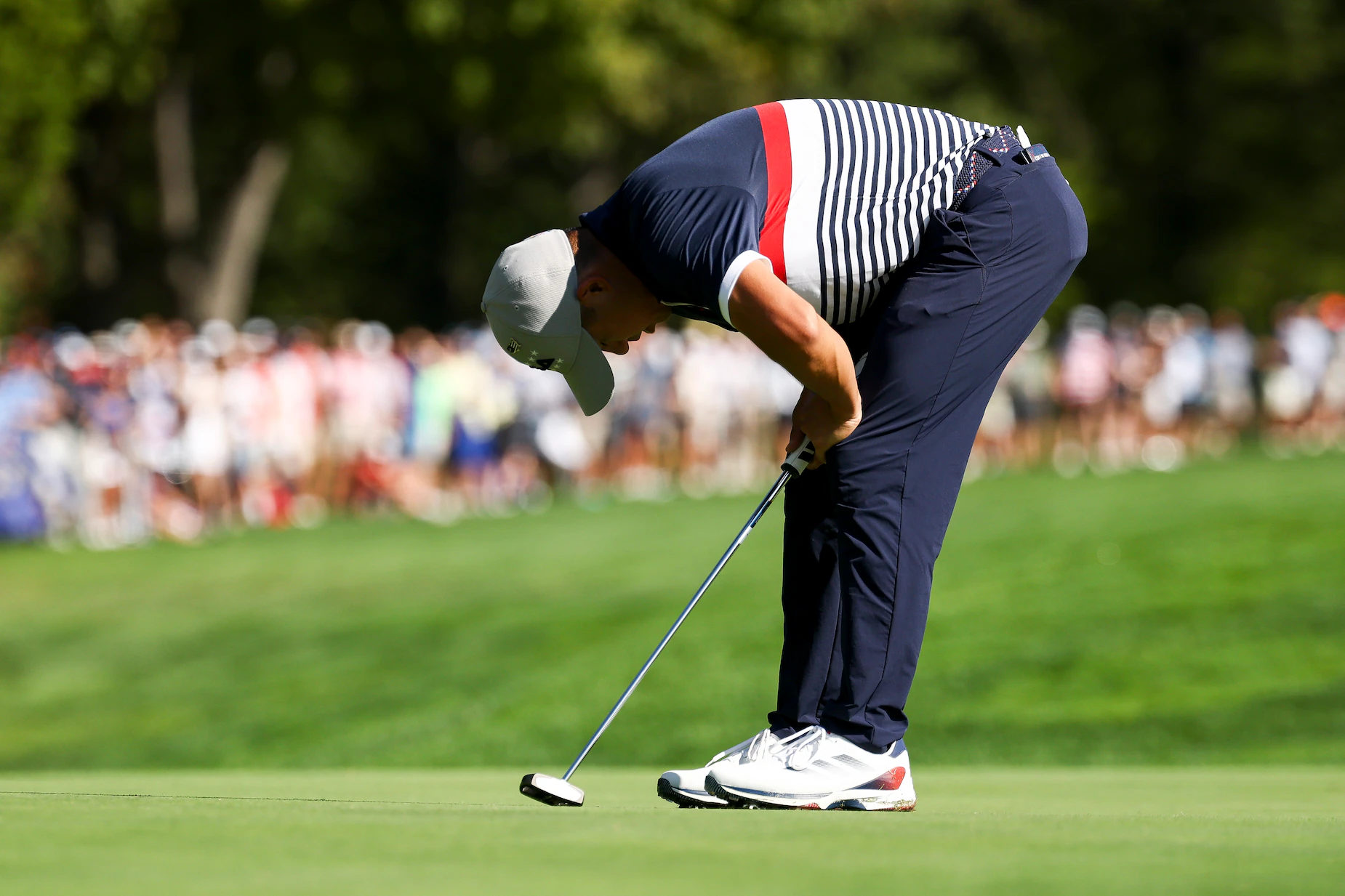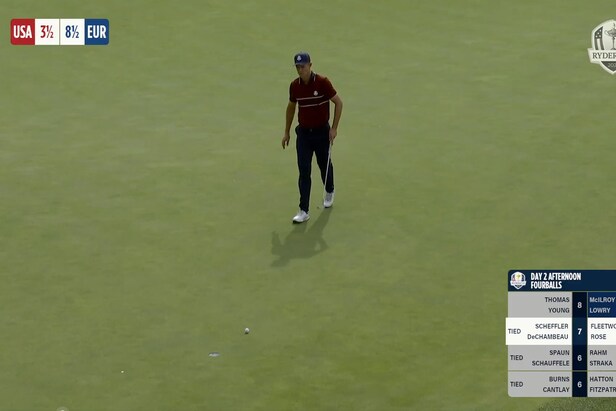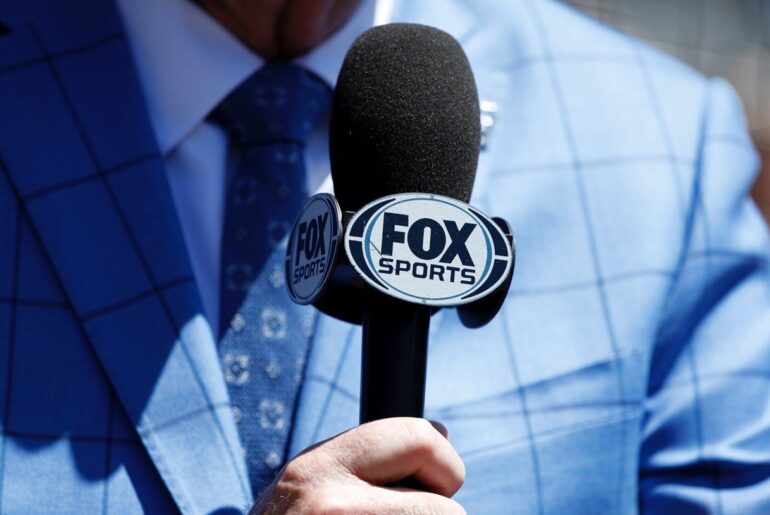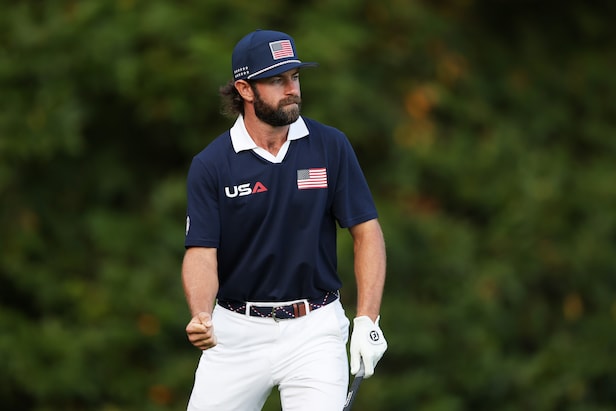It almost seemed like a joke—the foursomes pairing of Harris English and Collin Morikawa, announced Thursday, happened to be 132nd out of 132 possible teams in Data Golf’s statistical rankings of Ryder Cup pairings. A golf analytics website is not the be-all and end-all, good as it might be, but dead last? Add in the fact that they had never played together in any format (English had personally never played foursomes before) and weren’t known for being great friends or having personal chemistry, and it was a total head-scratcher. As if that wasn’t bad enough, they drew in the first session of the 2025 Ryder Cup Tommy Fleetwood and Rory McIlroy, who were a combined 11-5-1 in foursomes, and 2-0 together in this format two years ago in Rome.
If this were a movie, it would be the start of a great David vs. Goliath tale. In real life, it played out exactly as everyone expected, with a 5-and-4 win for the Europeans that wasn’t as close as it sounded.
RELATED: Jon Rahm, Tyrrell Hatton steal the Bryson DeChambeau Show
We’ll have to wait to hear what Keegan Bradley or his vice captains or his stats team saw in the pair—the captain didn’t speak extensively with Friday afternoon fourballs awaiting—but the irony is that if it was a blunder, it may have been worked out better than the Americans deserved, for the simple fact that they met a European team that probably would have beat anyone.
Fleetwood and McIlroy, continuing their torrid streak from Italy, were on a roll on the front nine at Bethpage Black, posting five birdies on what was supposed to be the hardest Ryder Cup course in recent memory (softened, however, by Thursday’s rain). Each of those birdies won a hole, and even when the Americans showed a very brief sign of life with a birdie on 9, the match was effectively over by the turn.
The drama, in fact, was mostly to be seen outside the golf. The American fans, strangely muted on the traditionally raucous first tee, were a non-factor early as the first three matches of the session got out of hand. In the absence of collective noise, you could hear the individual hecklers—I counted five different holes where McIlroy heard shouts of “Pinehurst” and “U.S. Open!” while standing over a short putt, just before he inevitably made it—and more than anything, you could hear the Europeans. Always proficient at making five people sound like 30, their presence registered in a way it didn’t four years ago, when COVID kept them away from Whistling Straits.
Elsewhere, Secret Service members dotted the course in preparation for the arrival of President Trump, whose plane touched down just before the end of the session. Maybe he’ll provide the fire that Bradley could not, when he appeared at 5:45 a.m. on the first tee to exhort the crowd: “Let’s ****ing go, boys!” But when the sun finally rose in the eastern sky, illuminating the streaky clouds in orange and revealing the architecture of the course—sloped bunkers surrounded by stalks of bluestem, and the long, green, twisting fairways—neither the fans or his players were ready to answer the call. Even a chant of “**** you, Rory” seemed halfhearted as the match teed off.
RELATED: What was supposed to be America’s secret weapon never showed up
One of only two high points in the session came on the very first hole, when Bryson DeChambeau rose to the occasion and hit his opening drive within breathing distance of the green. After a mediocre pitch by his partner Justin Thomas, an unfortunate sign of things to come, he buried the birdie putt. It felt auspicious, but it was not. By the turn, the Europeans had taken a lead, and two birdies on 12 and put the match out of reach.
The second match was nothing less than the continuation of an ongoing nightmare for the Americans. Scottie Scheffler, World No. 1, was once again beaten badly in a pairs match; not so bad as the 9-and-7 drubbing that led to tears in Rome, but at 5 and 3, not great either. The culprit here was less Scheffler than Russell Henley, who set the tone for an awful round with a drive into the rough on one. The man who had paired so well with Scheffler at last fall’s Presidents Cup, and seemed to solve a problem of who to pair with the best player in the world, played less like that former version of himself, and more like Sam Burns, whose friendship with Scheffler has not led to wins at these team events.
RELATED: The early Friday stat that should have U.S. fans most worried
With Morikawa struggling in match three, the last potential bright spot was the longstanding duo of Xander Schauffele and Patrick Cantlay, friends who were forced into fighting a pressure-packed rearguard action in the anchor match to salvage anything from the session. A bogey on 15 that saw their 1-up lead go up in smoke seemed to portent a worst-case scenario whitewash for the Europeans, but they rallied admirably to win 17 and 18 and give the American fans—who, to their credit, had rallied with some noise late in the afternoon—a bit of hope going into the fourball session.
Make no mistake, though, it was a minor disaster for the Americans to lose in the morning. One of the strange little anomalies of the last decade of Ryder Cups has been that the home team’s blowouts—five straight, heading into Bethpage—have largely been the function of winning by huge margins in the foursomes sessions. This breaks a pattern, which is interesting, but it should be a little scary for the Americans to have forfeited that built-in advantage so early in this Ryder Cup. The last time a home team lost a Friday foursomes session, incidentally, came in 2004 at Oakland Hills. That was perhaps the low point in U.S. Ryder Cup history—an 18.5 to 9.5 rout in which Tiger Woods and Phil Mickelson were beaten twice—and if the U.S. isn’t careful, the echoes of that year could become more apparent as the match goes on.
The next significant Ryder Cup result, in this ear of the home blowout, will be a win for an away side. Cantlay and Schauffele staved off disaster for the Americans Friday morning, but Europe took a major step to securing one of the toughest victories in modern sport.
Main Image: Jared C. Tilton
Follow Golf Digest Middle East on social media
X
YouTube







